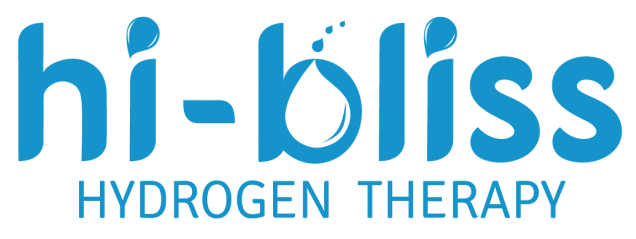How much sleep do you need? What happens when you don’t get enough? By understanding your body’s needs, you can improve your sleep schedule and the quality of your waking life.
The quality of your sleep at night directly affects your mental and physical health and how well you feel during the day. Sleep impacts your productivity, emotional balance, brain and heart health, immune function, creativity, vitality, and even your weight. No other activity delivers so many benefits with so little effort!
Minimal sleep loss can take a substantial toll on your mood, energy, mental sharpness, and ability to handle stress. And over the long-term, chronic sleep loss can wreak havoc on your mental and physical health. Sleep isn’t merely a time when your body shuts off. While you rest, your brain stays busy, overseeing biological maintenance that keeps your body running in top condition, preparing you for the day ahead. Without enough hours of restorative sleep, you won’t be able to work, learn, create, and communicate at a level even close to your true potential. Regularly skimp on “service” and you’re headed for a major mental and physical breakdown.
Facts about Sleep
- Losing even one hour of sleep can affect your ability to think properly and respond quickly. It also compromises your cardiovascular health, energy, and ability to fight infections. Frequently waking up throughout the night.
- The quantity of sleep you get is important, sure, but it’s the quality of your sleep that you really have to pay attention to. Some people sleep eight or nine hours a night but don’t feel well rested when they wake up because the quality of their sleep is poor.
- The idea of “making up for lost sleep during the week by sleeping more on the weekends” may possibly cause a disruption in our sleep pattern / cycle. Although this sleeping pattern will help relieve part of a sleep debt, it will not completely make up for the lack of sleep. Furthermore, sleeping later on the weekends can affect your sleep-wake cycle so that it is much harder to go to sleep at the right time on Sunday nights and get up early on Monday mornings.
- Our body takes time to adjust to different sleep schedules. Most people can reset their biological clock, but only by appropriately timed cues—and even then, by one or two hours per day at best. It can take more than a week to adjust after traveling across several time zones or switching to the night shift at work.
How much sleep do you need?
There is a big difference between the amount of sleep you can get by on and the amount you need to function optimally. According to the National Institutes of Health, the average adult sleeps less than seven hours per night. In today’s fast-paced society, six or seven hours of sleep may sound pretty good. In reality, though, it’s a recipe for chronic sleep deprivation.
While sleep requirements vary slightly from person to person, most healthy adults need seven to nine hours of sleep per night to function at their best. Children and teens need even more. And despite the notion that our sleep needs decrease with age, most older people still need at least seven hours of sleep. Since older adults often have trouble sleeping this long at night, daytime naps can help fill in the gap.
The best way to figure out if you’re meeting your sleep needs is to evaluate how you feel as you go about your day. If you’re having enough sleep hours, you’ll feel energetic and alert all day long, from the moment you wake up until your regular bedtime. Here’s a chart on the Average Sleep Needs by Age (from the National Sleep Foundation) as a guide:-

Signs that you’re not getting enough sleep
If you’re getting less than eight hours of sleep each night, chances are you’re sleep deprived. What’s more, you probably have no idea just how much lack of sleep is affecting you. How is it possible to be sleep deprived without knowing it? Most of the signs of sleep deprivation are much more subtle than falling face first into your dinner plate. Here are some signs that you may be sleep deprived: -
- Need an alarm clock in order to wake up on time.
- Rely on the snooze button.
- Have a hard time getting out of bed in the morning.
- Feel sluggish in the afternoon.
- Get sleepy in meetings, lectures, or warm rooms.
- Get drowsy after heavy meals or when driving.
- Need to nap to get through the day.
- Fall asleep while watching TV or relaxing in the evening.
- Feel the need to sleep in on weekends.
- Fall asleep within five minutes of going to bed.
The effects of sleep deprivation
Sleep deprivation has a wide range of negative effects that go way beyond daytime drowsiness. Lack of sleep affects your judgment, coordination, and reaction times. Here are some of the effects of sleep deprivation:
- Fatigue, lethargy, and lack of motivation.
- Moodiness and irritability; increased risk of depression.
- Decreased sex drive; relationship problems.
- Impaired brain activity; learning, concentration, and memory problems.
- Difficulty making decisions - Reduced creativity and problem-solving skills.
- Inability to cope with stress, difficulty managing emotions.
- Premature skin aging.
- Weakened immune system; frequent colds and infections; weight gain.
- Impaired motor skills and increased risk of accidents; hallucinations and delirium.
- Increased risk of serious health problems including stroke, diabetes, high blood pressure, heart disease, Alzheimer’s disease, and certain cancers.
Sleep deprivation has a direct link to overeating and weight gain. There are two hormones in your body that regulate normal feelings of hunger and fullness. Ghrelin stimulates appetite, while leptin sends signals to the brain when you are full. However, when you don’t get the sleep you need, your ghrelin levels go up, stimulating your appetite so you want more food than normal. At the same time, your leptin levels go down, meaning you don’t feel satisfied and want to keep eating. So, the more sleep you lose, the more food your body will crave.
Learn more how Hi-Bliss Hydrogen Therapy can help with Sleep here: https://wordpress-851564-2937612.cloudwaysapps.com/treatment-services-stress-relief/
Sources:
HelpGuide, The National Institutes of Health, The National Sleep Foundation



